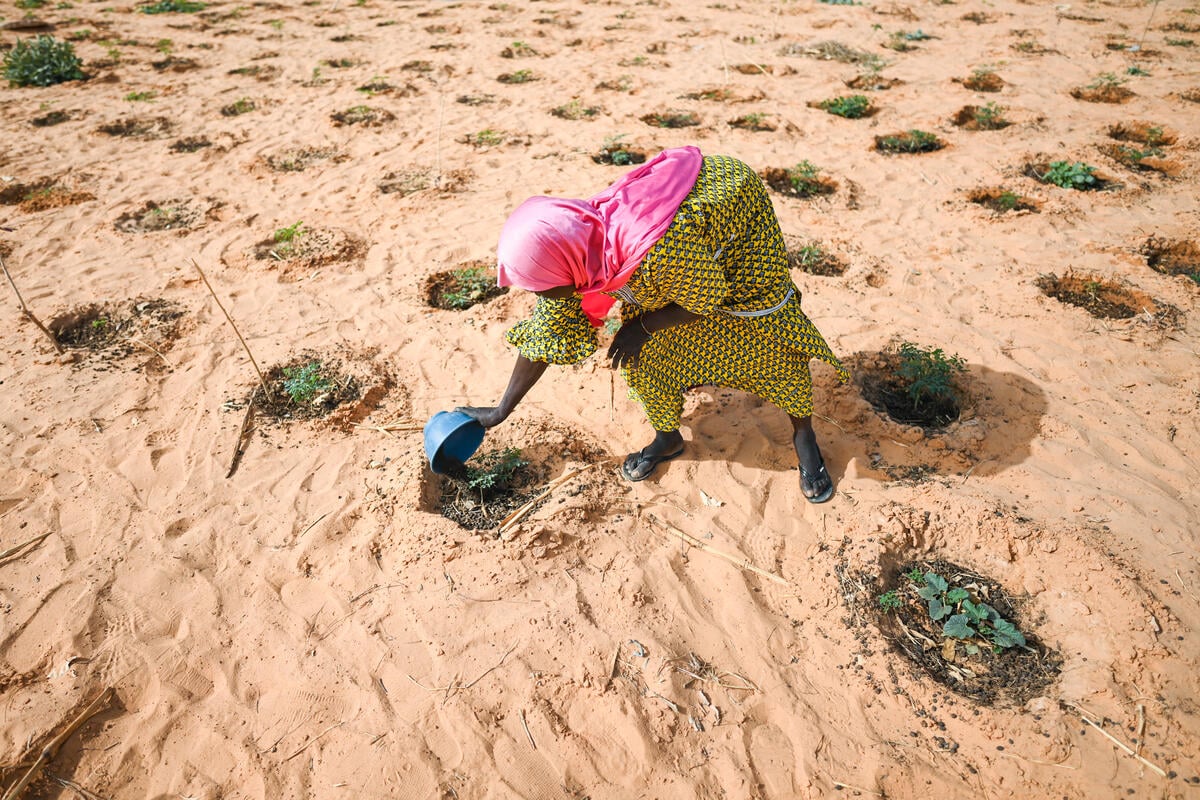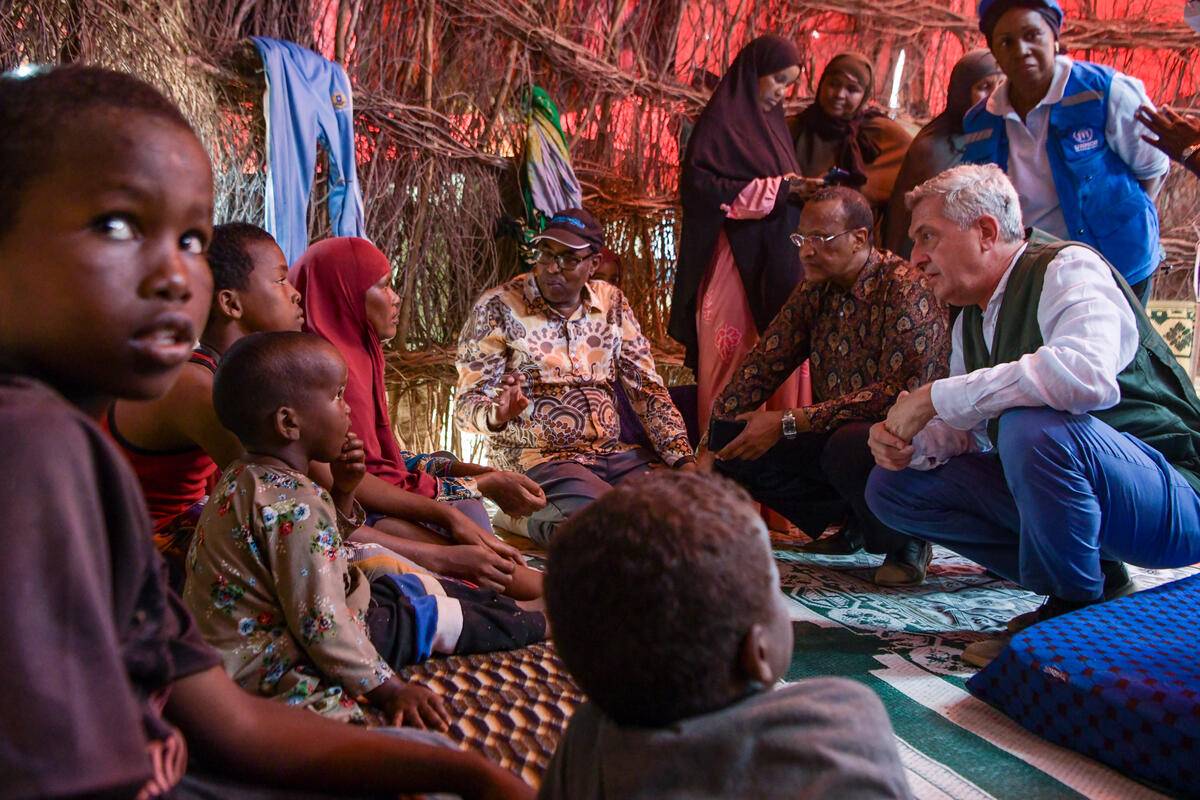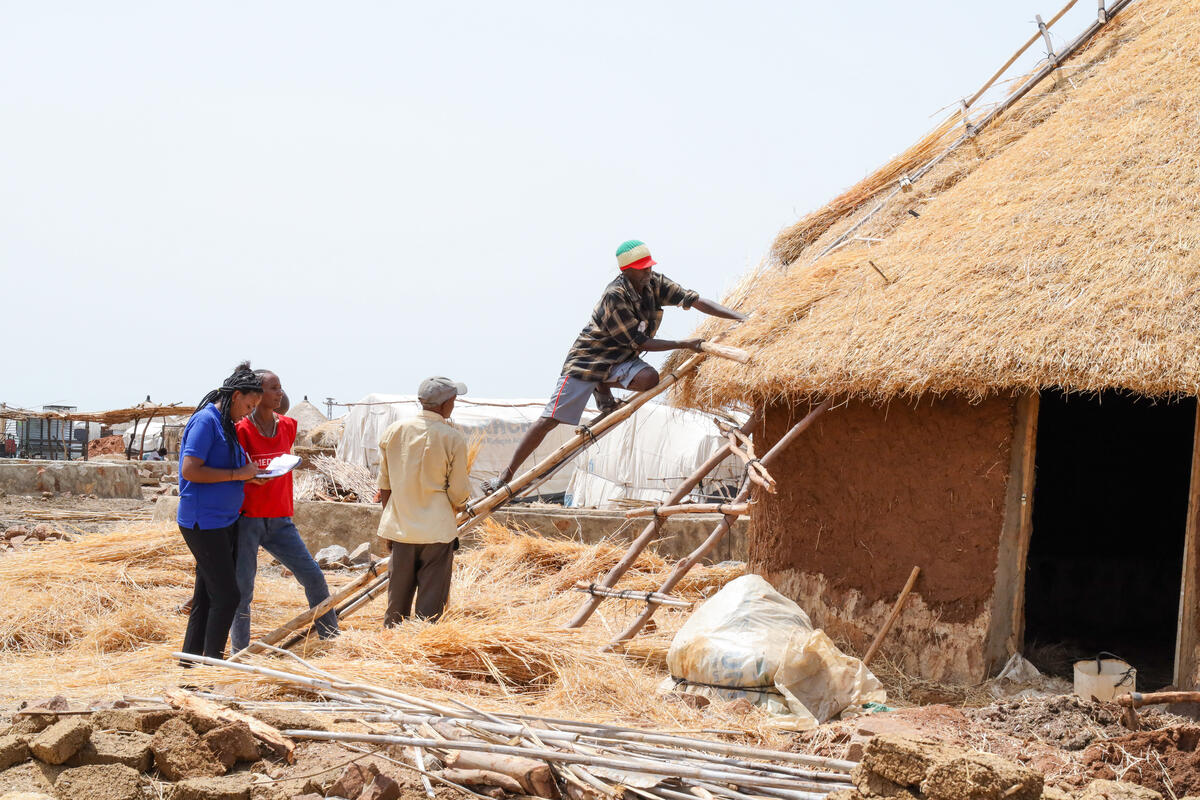Four Generations on the Run

Four Generations on the Run
As the ferry anchors near Kagunga village, on the Tanzanian shores of Lake Tanganyika, 60-year-old Foibe Ndikumana sits patiently on the sand, yearning to hear her name called. She is eager to leave behind the crowded lakefront village and the haunting memories of what she fled in Burundi.
Four generations of Foibe's family arrived in Kagunga two weeks earlier, around 6 May. They came from Nyanza Lac, a city in southern Burundi's Makamba province. "We fled because of lack of security," she says. "When the political parties started the campaign, some of them were using phrases like: 'We will wash you like clothes with detergent.' Because of what happened the three previous times when we fled, we were scared."
Now a refugee for the fourth time, Foibe has spent more than half of her life in exile. This time she is joined by her 80-year-old mother, Elizabeth; her 20-year-old daughter, Silvane; her 13-year-old nephew; and two grandchildren. Of her eight children, only the youngest, Silvane, was born in Burundi.
Foibe's family are among some 47,000 Burundian refugees who fled to Tanzania during the month of May. Many arrived here in Kagunga, where they soon found themselves in the midst of a deadly cholera outbreak. A round-the-clock boatlift helped transport the majority of them to Kigoma, where better medical care was available, and the epidemic was contained.
Foibe fled Burundi for the first time in 1972, when tens and perhaps hundreds of thousands of people were killed, including her father, and spent the next 17 years in exile in Tanzania's Gatumba settlement. Just three years later, upon the 1993 assassination of President Melchior Ndadaye, she fled to Tanzania again. She returned home two months later, but peace did not last.
"The killings started again in 1997," she recalls. "That's when my husband was killed. We found him stabbed to death. We don't know who did it. It was at night." And so she fled again, this time to Tanzania's Mtabila refugee camp. After five years there, she was finally able to return home – until violence erupted again in April.
Foibe and her family have struggled to survive in Kagunga, where the sudden influx initially meant that food had to be prioritized for children and women who are pregnant or lactating. "Being here is difficult," she says. "It is crowded. It is smelly. There is no food. Some people are starving. Some people are sick. They are dying. We sleep here on the floor. It is difficult. I did not bring any food here. Some relatives gave us food but today we had no food."
"We are very tired of being refugees, and we pray to God that this will end."
Despite the dire conditions in Kagunga, she is happy to have reached safety in Tanzania and has no hope of going back to Burundi in the near future. "When we were in Mtabila, we were told that there was peace and we went back," she says. "Now I don't believe in it anymore. I don't want to go back . . . My heart is full of trouble, of problems. There is nothing I will miss from Burundi."
Soon, Foibe hears her name called and boards the ferry to Kigoma with her family members. From there, they travel overland to Nyarugusu refugee camp, where they begin to feel more at ease.
"We were received well with a warm welcome," Foibe says. "They showed us a place where we can rest and we were given sleeping mats. This place is quite nicer than Kagunga. Things are slightly getting to normal." Still, the uncertainty wears on her. "We are very tired of being refugees, and we pray to God that this will end . . . We are hoping on God and UNHCR."
Elizabeth, her 80-year-old mother, also expresses relief to be in Nyarugusu camp. "I thank God and you people of UNHCR," she says. "God is helping us through you."














